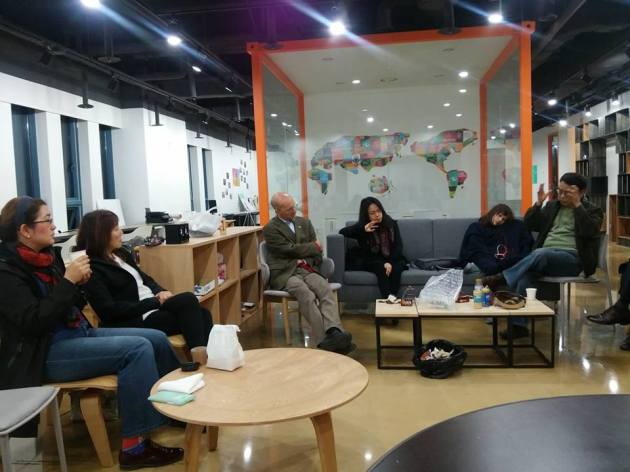A Visit to Gabriel House
November 22, 2015
Emanuel Pastreich
I had the chance to volunteer with my daughter Rachel today at the Gabriel House (가브리엘의집) near Namsan for about three hours. We did not know anything about Gabriel House before we arrived and simply assumed it was an orphanage (the Korean term for a foster home as many of the children in so-called “orphanages” have parents who simply cannot, or will not care for them). But Gabriel House is a Christian home dedicated to caring for children with severe mental disabilities such as autism and retardation. Some of the children were capable of speech, but no small number of them sat alone, some banging their heads against the walls.
It was hard work and a bit of a shock for my daughter who had not had such an experience previously. But it was extremely valuable and I hope to go back again soon. I know from my previous experience that if you do not go back repeatedly, you cannot make much of a difference to children in such a situation.
I volunteered with autistic children for years back in graduate school, both in the United States and in Korea, but it had been some twenty years since I had done so (although I have volunteered with foster children in Korea more recently). I realized that I have become much more stand-offish and full of myself over the years. I have not had to work with people who require real attention and who you must feed and clean and care for. So it was extremely difficult to start that work up again after that many years.
I was also profoundly aware of how alone these children are. Not only that their disabilities cut them off from the world, but that they do not have a family around them to give them attention, negative and positive, day in and day out. I found that just sitting next to the children was the best that I could do.
The first boy I worked with was extremely difficult and I eventually left him because I could not make any progress at all. But I found a few other young children with whom eye contact was possible and even occasional smiles. Perhaps I should have just stayed with the first boy, but there were some fifteen children and not that many volunteers.
I also was forced to think about just how little I understand about the world. I thought to myself first about how little these children understand about the world we live in, from climate change, to economics to geopolitics. But after contemplating this angle for a few minutes, I was led to the conclusion that in fact in the larger scale of things I am much closer to these kids than I imagine as there is so much in the universe, in my own society that I simply do not understand.



